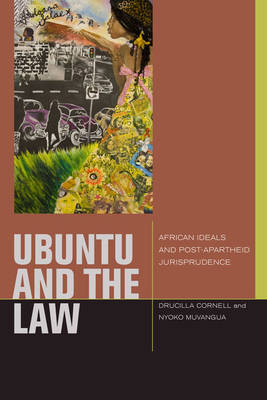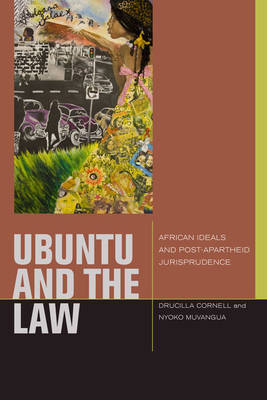
- Afhalen na 1 uur in een winkel met voorraad
- Gratis thuislevering in België vanaf € 30
- Ruim aanbod met 7 miljoen producten
- Afhalen na 1 uur in een winkel met voorraad
- Gratis thuislevering in België vanaf € 30
- Ruim aanbod met 7 miljoen producten
Zoeken
€ 132,95
+ 265 punten
Omschrijving
This is the first comprehensive casePub to address the relationship of uBuntu to law. It also provides the most important critical articles on the use of uBuntu, both by the Constitutional Court and by other levels of the judiciary in South Africa.
Although uBuntu is an ideal or value rooted in South Africa, its purchase as a performative ethic of the human goes beyond its roots in African languages. Indeed, this casePub helps break through some of the stale antinomies in the discussions of cultures and rights, since both the courts and the critical essays discuss ubuntu as not simply an indigenous or even African ideal but one that is its own terms calls for universal justification. The efforts of the Constitutional Court to take seriously competing ideals of law and justice has led to original ethical reasoning, which has significant implications for post apartheid constitutionalism and law more generally. uBuntu, then, as it is addressed as an activist ethic of virtue and then translated into law, helps to expand the thinking of a modern legal system's commitment to universality by deepening discussions of what inclusion and equality actually mean in a postcolonial country. Since uBuntu claims to have universal purchase, its importance as a way of thinking about law and justice is not limited to South Africa but becomes important in any human rights discourse that is not limitedly rooted in Western European ideals. Thus this book will be a crucial resource for anyone who is seriously grappling with human rights, postcolonial constitutionalism, and competing visions of the relations between law and justice.Specificaties
Betrokkenen
- Uitgeverij:
Inhoud
- Aantal bladzijden:
- 494
- Taal:
- Engels
- Reeks:
Eigenschappen
- Productcode (EAN):
- 9780823233823
- Verschijningsdatum:
- 2/04/2012
- Uitvoering:
- Hardcover
- Formaat:
- Ongenaaid / garenloos gebonden
- Afmetingen:
- 157 mm x 231 mm
- Gewicht:
- 793 g

Alleen bij Standaard Boekhandel
+ 265 punten op je klantenkaart van Standaard Boekhandel
Beoordelingen
We publiceren alleen reviews die voldoen aan de voorwaarden voor reviews. Bekijk onze voorwaarden voor reviews.











